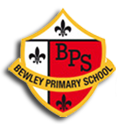Supporting Your Child’s Learning at Home
At Bewley Primary, we believe that parents and carers play a vital role in supporting children’s learning. Here are some practical ways you can help your child in each area of the Early Years Foundation Stage (EYFS) curriculum.
Reading and Phonics
Reading and phonics are at the heart of early learning. You can support your child by reading together every day and talking about the stories, characters, and pictures; practising the sounds introduced in Read Write Inc. You can encourage your child to spot the sounds taught in words around the home; singing the Rhyme of the Week, which you will be notified of each week in both Nursery and Reception; and enjoying word games, I-spy, and other activities to develop listening, attention, and early writing skills.
Mathematics
Mathematics in Nursery and Reception focuses on building a love of numbers, problem-solving skills, and understanding patterns in everyday life. You can support your child at home by counting objects together during daily routines, such as toys, steps, or snack items; using number games and puzzles to explore patterns, shapes, and quantities; talking about numbers in the environment, e.g., house numbers, prices, or bus stops; and encouraging your child to explore Ten Town activities and join in with counting songs or rhymes.
Understanding the World
Children develop knowledge of the world through curiosity, exploration, and first-hand experiences. Support your child by going on seasonal walks and noticing changes in nature, weather, and wildlife; visiting local farms, parks, or nature reserves and talking about what you see; discussing your child’s experiences at home, around the community, or on trips; and asking questions about everyday life and encouraging your child to explore answers.
Expressive Arts and Design
Creativity helps children express themselves, develop fine motor skills, and build confidence. At home, you can provide opportunities for drawing, painting, cutting, and sticking; encourage role play, dressing up, and imaginative games; sing songs, dance, or play musical instruments together; and talk about and celebrate your child’s creations, helping them describe their ideas and choices.
Physical Development
Physical development supports coordination, balance, and overall health. You can help by encouraging your child to play outside, run, climb, or ride bikes and scooters; practising fine motor skills like using scissors, holding a pencil, or threading beads; playing games that involve throwing, catching, hopping, or balancing; and talking about healthy eating, hygiene, and the importance of staying active.
Personal, Social, and Emotional Development
Developing confidence, independence, and positive relationships is key to successful learning. You can support your child by talking about feelings and helping your child express emotions; encouraging sharing, turn-taking, and problem-solving in social situations; celebrating achievements, however small, to build self-esteem; and discussing daily routines and helping your child take on small responsibilities at home.
Communication and Language
Language is central to learning across all areas. You can develop your child’s skills by listening carefully and responding to your child’s ideas and questions; reading together daily and talking about the stories, pictures, and characters; singing songs, rhymes, and playing word games to develop vocabulary; and encouraging your child to describe what they are doing and to tell you stories.
By spending just a little time each day exploring these activities, you can make a big difference in your child’s learning and enjoyment of school.

